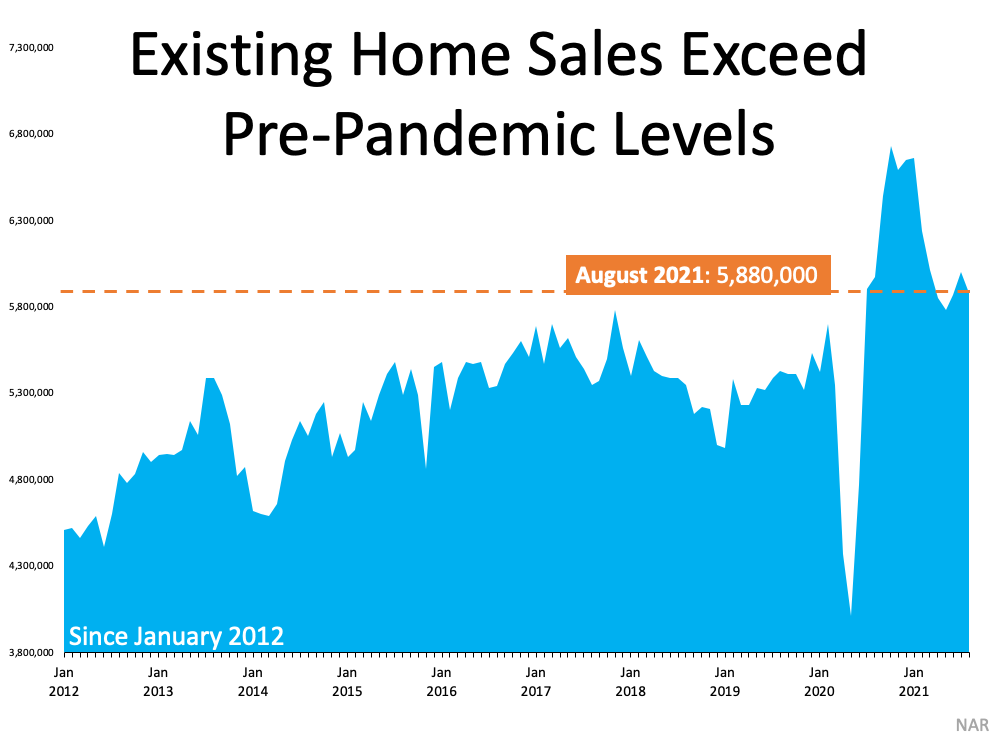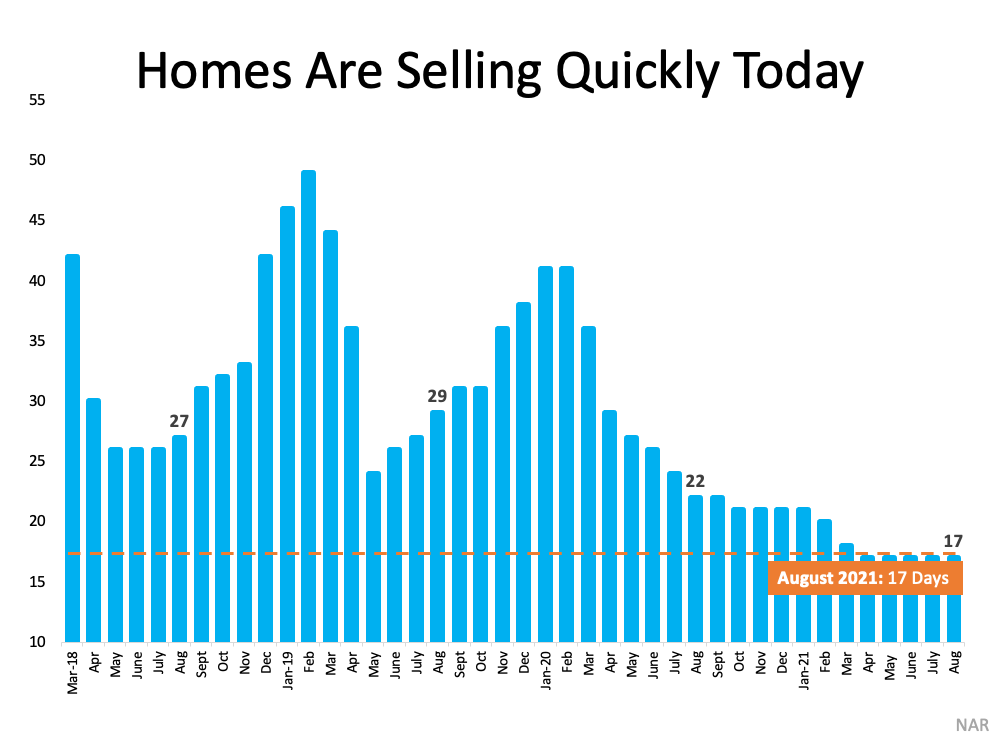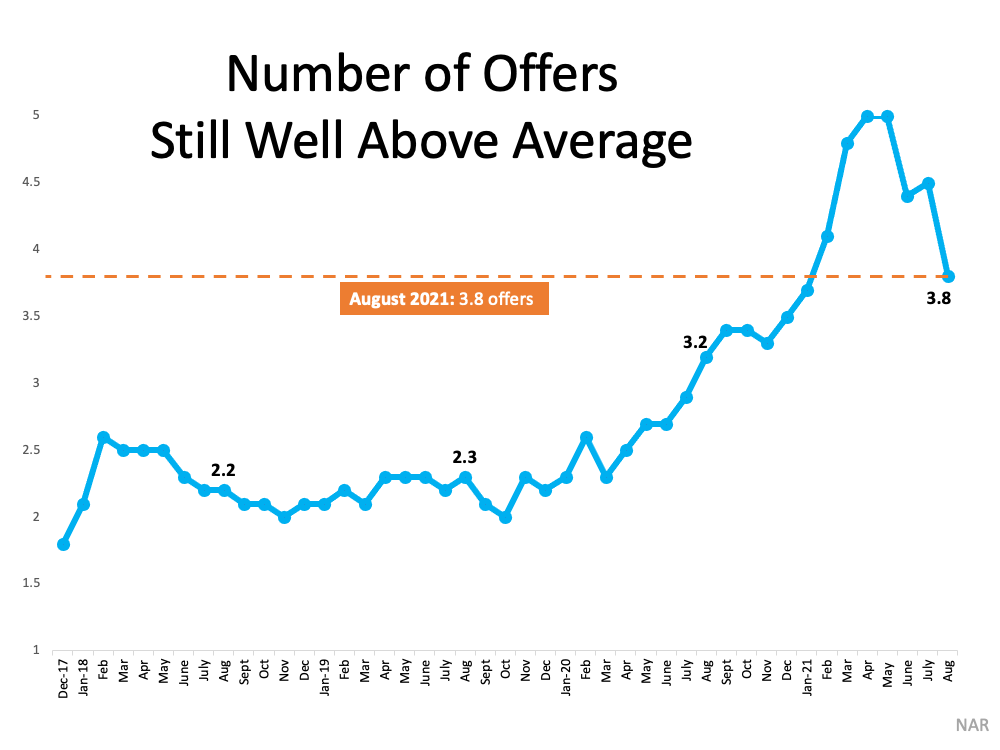
“The housing market today is anything but normal, and it’s still an incredibly strong sellers’ market.”
As you follow the news, you’re likely seeing headlines discussing what’s going on in today’s housing market. Chances are high that some of the more recent storylines you’ve come across mention terms like cooling or slowing when talking about where the market is headed.
But what do these terms mean? The housing market today is anything but normal, and it’s still an incredibly strong sellers’ market, especially when compared to the few years leading up to the pandemic. With that in mind, what can previous years tell us about today’s real estate market and if it’s truly slowing?
We’re Still Seeing an Above Average Number of Sales
You may see headlines about a drop in home sales. But are those headlines telling the full story? The most recent Existing Home Sales Report from the National Association of Realtors (NAR) does show a drop of about 2% from July to August. But the month-over-month decline doesn’t provide the full picture (see graph below): As the graph shows, historical context is key. Today’s home sales are well ahead of some of the more normal years that led up to the health crisis. That means buyers are still in the market, which is great news if you’re planning to list your home.
As the graph shows, historical context is key. Today’s home sales are well ahead of some of the more normal years that led up to the health crisis. That means buyers are still in the market, which is great news if you’re planning to list your home.
Houses Are Selling Faster Than Usual
When headlines mention the market is slowing, sellers may naturally wonder if their house will sell as quickly as they’d like. According to the most recent Realtors Confidence Index from NAR, homes are still selling at record speed (see graph below): Again, if we look back at data from previous years, we can see the average time on market – 17 days – means homes are selling faster than a normal pace.
Again, if we look back at data from previous years, we can see the average time on market – 17 days – means homes are selling faster than a normal pace.
Bidding Wars Are Still the Norm
The Realtors Confidence Index from NAR also shows a drop in the average number of offers homes are receiving in August, and many headlines may simply focus there without providing the important context (see graph below): Again, it’s important to compare today’s market to trends from recent years. Currently, the average number of offers per listing is higher than 39 of the previous 45 months. That means the likelihood of a bidding war on your home is still high. And the number of offers your house receives can have a major influence on the final sale price.
Again, it’s important to compare today’s market to trends from recent years. Currently, the average number of offers per listing is higher than 39 of the previous 45 months. That means the likelihood of a bidding war on your home is still high. And the number of offers your house receives can have a major influence on the final sale price.
So, Is the Market Slowing Down?
While there are slight declines in various month-to-month data, it’s important to keep historical context in mind when determining what’s happening in today’s market. Odeta Kushi, Deputy Chief Economist at First American, put it best recently, saying:
“It’s not the white-hot market from earlier in the year & it’s not the 2020 market benefiting from a wave of pent-up demand but make no mistake this is still a hot housing market.”
Bottom Line
Don’t let headlines make you rethink listing your home this fall. Selling today means you can still take advantage of high buyer demand, multiple offers, and a quick sale. If you’re thinking of selling your house, let’s connect and discuss why this fall is the perfect time to do so.
To view original article, visit Keeping Current Matters.
The Return of Normal Seasonality for Home Price Appreciation
Don’t let the terminology confuse you or let any misleading headlines cause any unnecessary fear.
Beginning with Pre-Approval
Pre-approval gives you critical information about the homebuying process that’ll help you understand how much you may be able to borrow.
Your Home Equity Can Offset Affordability Challenges
Some homeowners are reluctant to sell and take on a higher mortgage rate on their next home, but what about home equity?
Are More Homes Coming onto the Market?
If you’ve been putting off selling your house, now may be the sweet spot to make your move. The longer you wait, the more competition you’ll have.
Why Is Housing Inventory So Low?
The shortage of inventory isn’t just a today problem. It’s been a challenge for years. Let’s take a look what contributed this limited supply
What Experts Project for Home Prices Over the Next 5 Years
Once you buy a home, price appreciation raises your home’s value, and that grows your household wealth.





